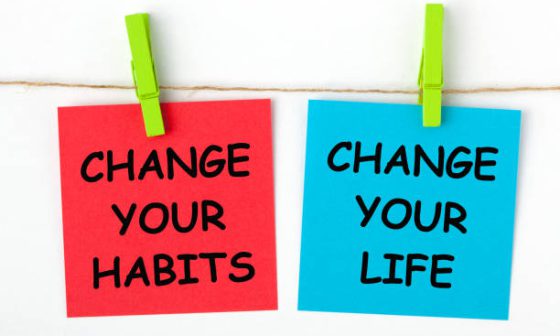When it comes to drugs and our bodies, we can never really be too careful. It is so delicate we actually become the result of what enters our bodies, at what proportion, and at what time. Then being careful shouldn’t be over-emphasized. So for this article, we researched a popular question ‘Can I take folic acid when I’m on my period?’
For us to answer the question, “can I take folic acid when I’m on my period ” we need to have a good understanding of what folic acid is and how it is related to our menstrual cycle. But quickly let us attempt this burning question of yours:
Can I take Folic acid when I’m on my period?
Yes, you can take folic acid during your period to help build red blood cells, as there is no known risk associated with taking it during your period. Folic acid assists the growth and maintenance of cells that transport and regulate iron throughout your body.
What is folic acid?
Folic acid is water soluble and one of Vitamin B’s family and is also known as vitamin B9. Folic acid is a form of folate i.e. converted into folate by the body and used as a dietary supplement. It is an essential nutrient required in diets, required for the body to make DNA and RNA, and metabolize amino acids necessary for cell division.

One of the health benefits of taking folic acid is, it helps reduce the risk of high blood pressure and anaemia that is caused by folate deficiency. Anaemia happens when you don’t have enough healthy red blood cells to carry needed oxygen to your body’s tissue. The recommended daily intake by adults is 400 micrograms of foods or dietary supplements. You can even get one delivered to your door step in Lagos, Nigeria here.
How does folic acid affect your menstrual cycle?
Heavy periods lead to blood loss over a long time. This depletes your body’s iron stores. With iron deficiency anaemia, you might feel tired all the time, weak, dizzy or short of breath, among other signs and symptoms. According to the World Health Organisation (WHO), approximately 469 million women worldwide suffer from anaemia, which is primarily due to iron loss at the time of heavy bleeding during periods.
Regular folic acid can actually help regulate your menstrual cycle. This can cause your period to arrive slightly later than usual. However, this is nothing to be concerned about. Research shows that women taking a folic supplement may have a lower level of the amino acid homocysteine in the ovaries. This helps the ovaries function better which can impact the length of your cycle.
Can I take Folic acid during my period?
Yes, you can take folic acid during your period to help build red blood cells, as there is no known risk associated with taking it during your period. Folic acid assists the growth and maintenance of cells that transport and regulate iron throughout your body. Therefore, you should take a combination of folic acid and iron during your periods. When you take them together, they help restore the level of red blood cells. As a result, they prevent the symptoms of anaemia.
Folic acid supplements are safe to take every day and it is actually recommended. Knowing the dosage (this will be an inbound link to another article talking about the dosage of folic acid) to take. Folate supplements have a multitude of health benefits, especially for women considering starting a family.
Read also: When Should a Pregnant Woman Treat Malaria
Other health benefits include
- Folic Acid improves fertility: Folic acid has a potent effect on fertility. However, the results differ in males and females. It works wonders for female fertility. A woman struggling to conceive should consult her physician and determine if she has a folic acid deficiency. Furthermore, it prevents pregnancy defects that can lead to miscarriage. It improves cell metabolism within the ovaries.
- As per a study, the positive effects of folic acid on male fertility are unclear. However, it improves the quality of a man’s sperm.
- Maintains brain health: The deficiency of folic acid may cause developmental delays and cognitive deterioration. It might also lead to behavioural and psychological problems.
- Beneficial before and during pregnancy. It is essential for the development of the foetus during the early stages of pregnancy. Research shows that folic acid helps to form the neural tube, which serves as the baby’s brain and spinal cord. It prevents significant congenital disabilities, including anencephaly, brain defect, and spina bifida (spine defect)
- Folic acid prevents heart disease: Folate and vitamin B12 are responsible for converting homocysteine to methionine, the building blocks for new proteins. This process gets disrupted when your body does not have adequate folate levels. It leads to hyperhomocysteinemia, an increase in homocysteine levels. Unfortunately, it causes arterial damage and blood clots in your blood vessels. Hence, taking folic acid is crucial. It lowers the risk of cardiovascular disease, stroke, and hypertension. In addition, people with high homocysteine levels and kidney failure should take folic acid orally.
- Promotes hair growth: there are cells present in your hair, skin, and tissue in the nails. And folic acid is vital for cell growth. As a result, folic acid improves the health of hair, skin, and nails. Also, contributes to the healthy functioning of your red blood cells. Red blood cell production is essential for the prevention of premature greying. When there is a folic acid deficiency, it changes the hair pigments, causing them to turn grey.
Folic acid deficiency
Folic acid deficiency can be caused by unhealthy diets and inappropriate use of folic acid tablets. The deficiencies can lead to
- Glossitis
- Diarrhea
- Depression
- Confusion
- Anemia
- Fetal neural tube and brain defects
Conclusion
Folic acid has a wide range of health benefits, such as promoting hair growth, maintaining a healthy menstrual cycle, and increasing fertility rates in women. In addition, it ensures the development of the foetus during pregnancy, prevents heart disease, and improves brain health.
Other frequently asked questions about folic acid
How does folic acid help heavy periods?
Folic acid won’t ease heavy periods
Can folic acid delay your period?
After research by the NCBI, there is no clear association between FA supplementation and cycle regularity and duration and intensity of menstrual bleeding.
Does folic acid delay ovulation?
Studies have shown that folic acid may also increase fertility. Women who take multivitamins with folic acid are more likely to ovulate (produce eggs). Previous studies found that women trying to conceive had somewhat higher pregnancy rates when taking folic acid.
Can folic acid cause an early period?
Some research has shown that taking a folic acid supplement can elongate your cycle. This can cause your period to arrive slightly later.
How does folic acid regulate periods?
Folic acid is said to promote regular ovulation and increased progesterone levels in the second half of the menstrual cycle.
Does folic acid make you sleepy?
When taken in excess, folic acid may make you sleepy. It can cause weakness, fatigue, and difficulty in concentration.
How best can I take folic acid?
Depending on what you want to achieve, taking folic acid as tables can sometimes be better than taking it as a form of food. This is because, with tablets, you get to measure the particular quantity needed. With food, you can just keep eating and not know the particular quantity you have consumed.
Does folic acid regulate periods?
Yes, folic acid regulates periods. It restores the levels of red blood cells in your body and prevents the symptoms.
Can I take folic acid when I’m not pregnant?
All women should get in the habit of taking folic acid daily even when they are not planning to get pregnant. For folic acid to help, a woman needs to take it every day, starting before she becomes pregnant.







4 comments
I’m finding it very hard to conceive, what can I do?
I like the teaching about frolic acid
Last month my period didn’t come and am not pregnant too,can I take folic acid please:my age 32